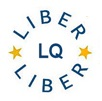Interactive Open Access Publishing and Peer Review: The Effectiveness and Perspectives of Transparency and Self-Regulation in Scientific Communication and Evaluation
DOI:
https://doi.org/10.18352/lq.7967Keywords:
scientific quality assurance, open peer review, collaborative peer review, open peer commentaryAbstract
The traditional forms of scientific publishing and peer review do not live up to the demands of efficient communication and quality assurance in today's highly diverse and rapidly evolving world of science. They need to be advanced by interactive and transparent forms of review, publication and discussion that are open to the scientific community and to the public. The advantages of open access, public peer review and interactive discussion can be efficiently and flexibly combined with the strengths of traditional publishing and peer review. Since 2001 the viability of this approach is demonstrated by the highly successful interactive open access journal Atmospheric Chemistry and Physics (ACP) and a growing number of sister journals of the European Geosciences Union (EGU) and Copernicus Publications. The achievements and statistics of these journals and their publishers clearly prove both the scientific benefits and the financial sustainability of open access. Future perspectives are outlined with regard to critical rationalism, open societies and the global information commons.Downloads
Download data is not yet available.

Published
2010-02-09
Issue
Section
Open Access: the OAI6 Workshop
License
Copyright (c) 2010 Ulrich Poschl

This work is licensed under a Creative Commons Attribution 4.0 International License.
How to Cite
Interactive Open Access Publishing and Peer Review: The Effectiveness and Perspectives of Transparency and Self-Regulation in Scientific Communication and Evaluation. (2010). LIBER Quarterly: The Journal of the Association of European Research Libraries, 19(3-4), 293-314. https://doi.org/10.18352/lq.7967





